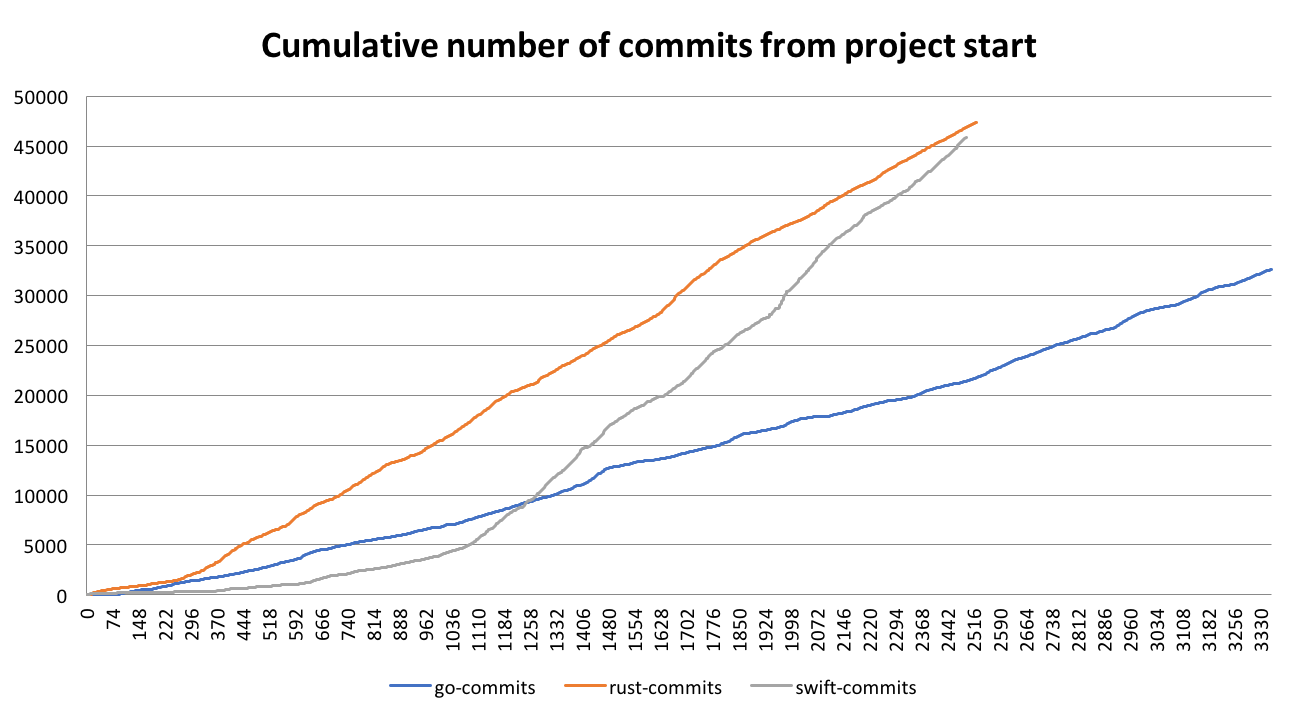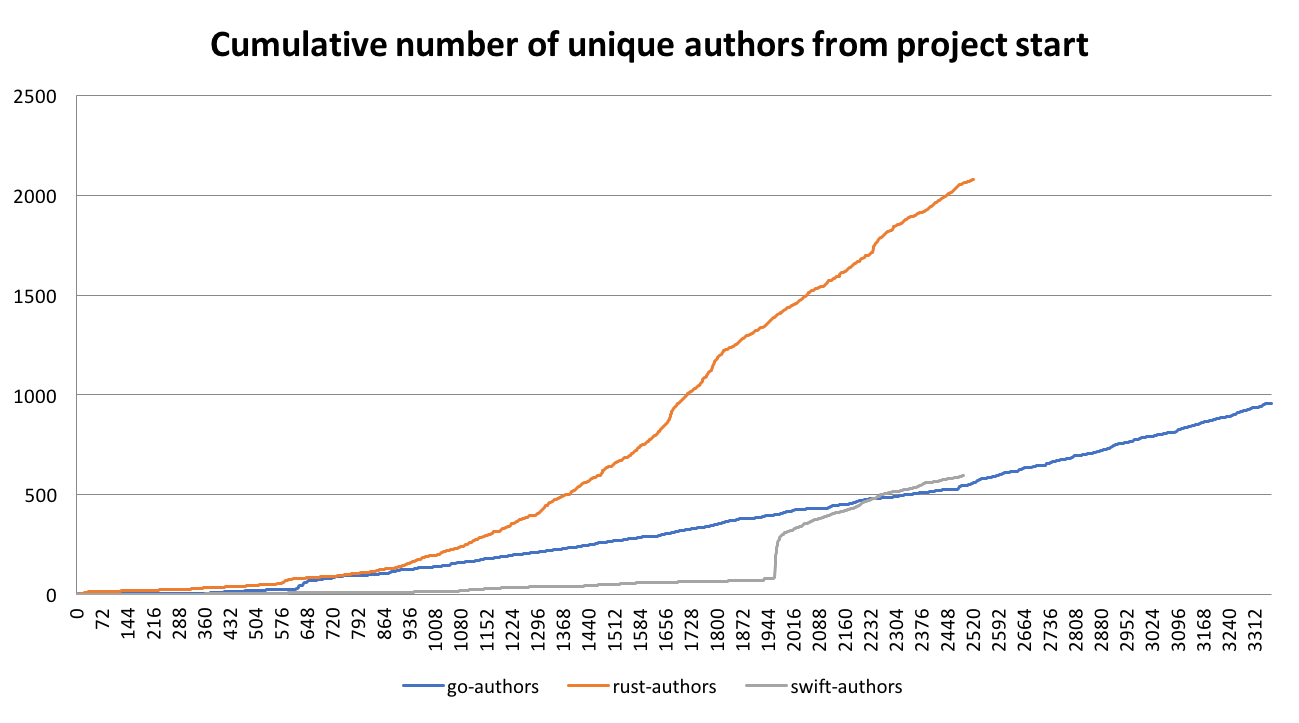Rust is a big tent
Cue images of fireflower-decorated tents.
Over the last year, Rust has replaced Python as my favorite programming language. Recently, the Rust community celebrated the second birthday of Rust 1.0, and the birthday blog post mentioned that 438 people contributed for the first time to the compiler and standard library this year.
This led me to wonder how this compares to other modern programming languages. Specifically, I was wondering about Go and Swift, languages that are of similar vintage and that compete in the same space of compiled, statically-typed languages with a performance focus.
One of the concerns I have seen from people about Rust's viability is the size of its community -- can Mozilla and volunteer contributors evolve Rust at a fast enough pace? And how does that pace compare to these other languages, both of which are backed by large corporations?
So I pulled Git repositories for each of these three projects and graphed the number of non-merge commits in each of the repositories from the first day:

Then, I also graphed the cumulative number of unique authors:

Code and data can be found on GitHub. I manually culled the first 4 commits from the Go repository, which reported being from 1972, 1974 and 1988; the first commit that I kept is from March 2, 2008. Swift started on July 17, 2010 and Rust on June 16 of the same year, surprisingly close to each other.
Clearly, this is a crude analysis (even ignoring the Excel charts). Repositories may not all contain the same depth of components (like compiler, standard library, documentation), and commit sizes could substantially differ due to differing project cultures. Still, two broad patterns are apparent:
- Rust has way more unique contributors than the other languages
- Rust gets many more commits than Go, but Swift is moving faster
As a result, I'm confirmed in my optimism about Rust's future.